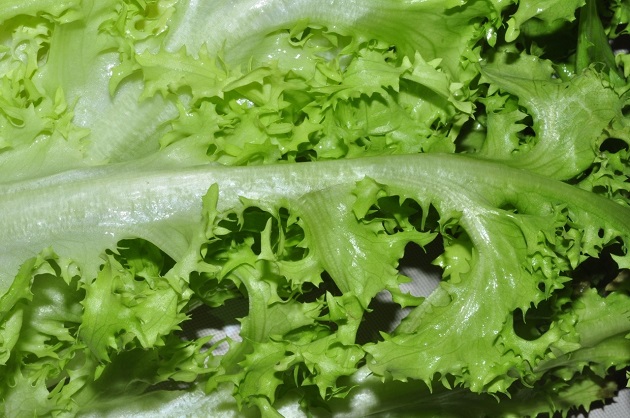We do know is that they had to be consumed as part of the Passover celebration,
 Escarole, Cichorum endivia, could be part of the bitter herbs the Henrews ate to commemorate Passover. / Photo: Antonio Cruz
Escarole, Cichorum endivia, could be part of the bitter herbs the Henrews ate to commemorate Passover. / Photo: Antonio Cruz
They shall eat the flesh that night, roasted on the fire;
with unleavened bread and bitter herbs they shall eat it. (Ex. 12:8)
The Hebrew word meorim occurs twice in the Old Testament (Exous 12:8; Numbers 9:11) to refer to the different plants that the Israelites ate with the lamb during the celebration of the Passover. Its literal meaning is “bitter” and was translated into Greek as pikrís, and into the Latin Vulgate as lactucae agrestes, or wild lettuce.
They were herbs with a bitter taste which, according to the Talmud, must have been juicy and greyish or silvery in colour. A range of five different sub-species were included within this general category: wild lettuce (in Hebrew hazeret); escarole lettuce (ulsin); chicory (tamka); bitter coriander (harhabina) and beetroot (maror).
It is not known which of these subspecies is being referred to here, or if it was a mixture of several of them. What we do know is that they had to be consumed as part of the Passover celebration, so that the people of Israel would remember the bitterness that they or their forefathers had experienced during their captivity in Egypt.
The 17th century English cleric, Timothy Cruso (1657-1697), wrote the following words in which he refers to bitter herbs.
“Bitter herbs will go down very well, when a man has such delicious "meats which the world knows not of." The sense of our Father's love is like honey at the end of every rod; it turns stones into bread, and water into wine, and the valley of trouble into a door of hope; it makes the biggest evils seem as if they were none, or better than none; for it makes our deserts like the garden of the Lord, and when we are upon the cross for Christ, as if we were in paradise with Christ. Who would quit his duty for the sake of suffering, that hath such a relief under it? Who would not rather walk in truth, when he hath such a cordial to support him, than by the conduct of fleshly wisdom, to take any indirect or irregular method for his own deliverance?” [1]
The disciple of Christ knows that they will one day overcome all the bitterness in this world, and enter, in the end, into the full enjoyment of the eternal and sublime grace of God (Ephesians 4:31; Heb. 12:15)
[1] Spurgeon, C. H The Treasury of David

Las opiniones vertidas por nuestros colaboradores se realizan a nivel personal, pudiendo coincidir o no con la postura de la dirección de Protestante Digital.
Si quieres comentar o